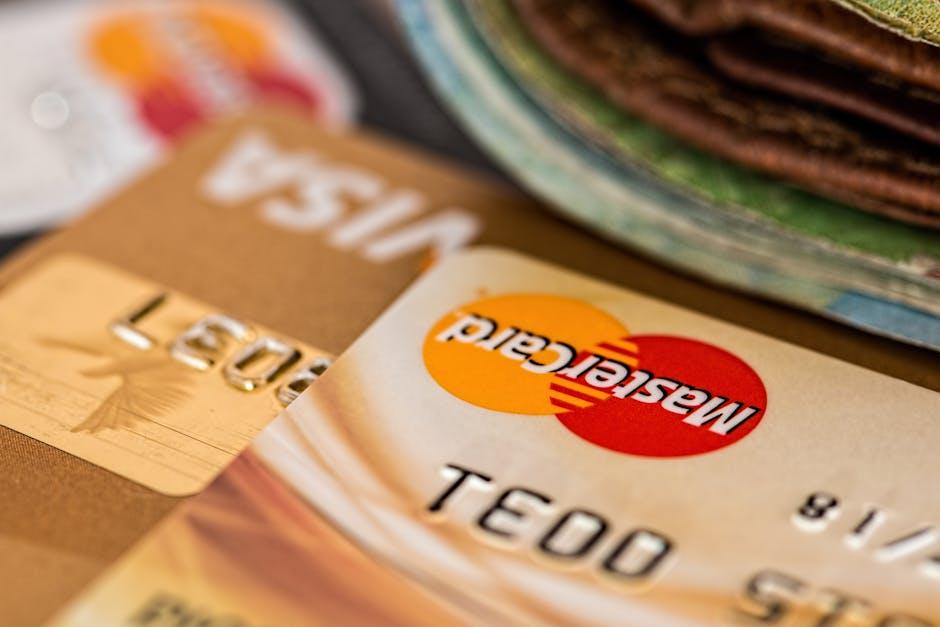In a world where financial choices can feel overwhelming, mastering the art of canceling your credit card is a skill worth acquiring. This decision isn’t merely about letting go of a piece of plastic; it’s an opportunity to take control of your financial health. Whether you’re looking to declutter your wallet, dodge annual fees, or simply shift your spending habits, knowing the smart steps for cancellation can help you avoid pitfalls and maintain your credit score intact. In this guide, we will explore the best practices for canceling your credit card wisely, ensuring that you make informed decisions tailored to your financial goals.
Understanding the Implications of Canceling Your Credit Card
Canceling a credit card might seem straightforward, but it comes with significant implications that can affect your financial health. Understanding these impacts is crucial to making an informed decision.
When you close a credit card account, you alter several factors in your credit profile that can influence your credit score. Here are some main points to consider:
- Credit Utilization Ratio: Your credit utilization ratio is the amount of credit you’re using compared to your total credit limit. Canceling a card reduces your total available credit, potentially increasing this ratio and hurting your score. For instance, if you have a total limit of $10,000 and you close a card with a $4,000 limit, your available credit drops to $6,000, raising your utilization ratio significantly [[2]].
- Length of Credit History: The length of time your accounts have been open constitutes about 15% of your credit score. Cancelling older accounts can shorten your credit history and negatively impact your score.
- Credit Mix: A varied credit mix (such as credit cards, installment loans, etc.) is beneficial for your credit score. If you’re relying heavily on credit cards, canceling one may reduce your mix, which could also impact your score.
- Potential Fees and Rewards: Before canceling, check for any remaining balance on rewards programs or if there are any annual fees tied to the card. You might want to redeem rewards before closing the account [[1]].
Moreover, certain situations could prompt a cancellation by the issuer, which can also affect your credit. Consider these causes:
- Inactivity: If you don’t use your card for an extended period, the issuer might close your account.
- Payment Issues: Late or missed payments could lead to the cancellation of the card, significantly impacting your credit score.
- Changes in Terms: If you reject a credit limit increase or other changes proposed by the issuer, it might lead to cancellation. During this period, understanding the terms is crucial [[3]].
The aftermath of a credit card cancellation extends beyond immediate score changes. As you navigate this decision, weigh the long-term benefits against the potential drawbacks to maintain a healthy credit profile.

Evaluating Your Financial Situation Before Taking Action
Before you make the decision to cancel your credit card, it’s crucial to take a step back and evaluate your financial situation. Understanding your current standing can help mitigate negative impacts on your credit score and avoid potential pitfalls associated with canceling a card. Here are some key factors to consider:
- Credit Score Impact: Closing a credit card can affect your credit utilization ratio. If the card has a high limit and you cancel it, your overall credit limits decrease, which might lead to a higher utilization rate and a potential dip in your credit score.
- Payment History: Credit history makes up a significant portion of your credit score. If you cancel an older card, you lose its positive payment history, which can also negatively influence your score.
- Existing Debt: Assess your total debt load. If you have outstanding balances on other accounts, consider how canceling a credit card may affect your ability to manage those payments effectively.
- Annual Fees: If the credit card incurs an annual fee, weigh the costs against the benefits you receive from it. Sometimes, downgrading to a no-fee card may be a smarter option instead of outright cancellation.
- Rewards and Benefits: Many cards offer rewards like cash back, travel points, or other perks. Evaluate what you might lose when you cancel the card, and if the rewards outweigh the reasons for canceling.
Here’s a simple table to compare your current card against your new card options:
| Feature | Current Card | New Option |
|---|---|---|
| Annual Fee | $95 | $0 |
| Rewards Rate | 1.5% Cash Back | 2% Cash Back |
| Credit Limit | $5,000 | $4,000 |
| Age of Account | 5 Years | N/A |
Ultimately, making an informed decision requires thorough consideration of these factors. By critically assessing your financial situation, you can ensure that you are making the best move for your current and future financial health.

Strategies for Minimizing Impact on Your Credit Score
When it comes time to cancel your credit card, it’s important to approach the situation thoughtfully to minimize any adverse effects on your credit score. Here are some effective strategies:
- Assess Your Credit Utilization Ratio: Before canceling, check your credit utilization ratio, which is calculated by dividing your total credit card balances by your total credit limits. Aim to keep this ratio below 30%. If canceling a card increases your utilization ratio significantly, consider postponing the cancellation.
- Pay Down Balances First: If you have balances on other credit cards, try to pay these down before closing an account. Reducing your outstanding debts can help maintain a lower utilization ratio and bolster your credit score.
- Close Accounts Strategically: If you have multiple cards, prioritize closing those with the lowest credit limits or the highest fees. This approach prevents a significant impact on your overall credit limit.
- Monitor Your Credit Score: Keep an eye on your credit score through free resources such as Credit Karma or your bank’s online services. This will help you track the score’s movement post-cancellation and address any issues as needed.
- Consider Timing: Avoid canceling cards before significant loan applications, such as mortgages or auto loans, where a better credit score can secure favorable terms. Plan to cancel during a period when your score is less critical.
- Request a Credit Limit Increase: Before canceling a card, you could also ask for a credit limit increase on other cards. This can help maintain your total available credit, mitigating the impact of closing an account.
| Strategies | Benefits |
|---|---|
| Assess Credit Utilization | Helps maintain a healthy credit ratio |
| Pay Down Balances | Reduces overall debt and improves score |
| Close Strategically | Avoids significant credit limit loss |
| Monitor Your Score | Enables proactive management of your credit |
| Consider Timing | Prevents negative impacts during key financial periods |
| Request Limit Increase | Maintains total credit availability |
By implementing these strategies, you can navigate the process of canceling your credit card with confidence, protecting your credit score while making decisions that are in your best financial interest.

Steps to Cancel Your Card Smoothly and Efficiently
Canceling your credit card can seem daunting, but with a few careful steps, you can do it smoothly and efficiently while protecting your credit score and benefits. Here’s how:
- Review Your Account Status – Before making any decisions, check your account for outstanding balances or rewards. It’s important to understand what you might be giving up.
- Redeem Rewards – If your card offers rewards points or cash back, make sure to redeem them before cancellation. Once the card is closed, you may lose access to these benefits.
- Pay Off Your Balance – Clear any remaining balance on your card. This action not only simplifies the cancellation process but also prevents interest charges from accumulating.
- Consider Your Credit Score – Understand how closing the card may impact your credit score. Canceling a card with a long credit history can affect your credit utilization ratio. Aim to keep older accounts open if possible.
- Contact Your Card Issuer – Choose your preferred method of cancellation-whether by phone, online, or via mail. If calling, be prepared to navigate through customer service procedures:
- Gather necessary information like your account number and personal identification.
- Ask about any potential impact on your credit score.
- Request a confirmation email or letter of cancellation.
- Follow Up – After cancellation, verify that the account is closed correctly. Check your credit report to ensure that the account is marked as closed by you.
| Method of Cancellation | Pros | Cons |
|---|---|---|
| Phone | Immediate confirmation, direct assistance | Possibility of long wait times |
| Online | Convenient, can do anytime | May require navigation through multiple screens |
| Formal documentation of cancellation | Slower process, risk of mail delays |
By following these steps, you can cancel your credit card without unnecessary complications. Make sure to stay informed and proactive throughout the process to safeguard your financial health.

Concluding Remarks
In conclusion, mastering the art of canceling your credit card the smart way requires careful consideration and strategic planning. As you weigh the pros and cons, remember that the impacts on your credit score and ongoing benefits are crucial factors to keep in mind. Whether it’s shedding unnecessary debt or ensuring you retain valuable perks, taking the right steps can empower you to make this financial decision confidently. So, before you take the plunge, reflect on your credit utilization, account age, and overall financial goals. With the right approach, canceling a credit card can be a decisive step toward healthier financial habits and a more robust credit profile.











